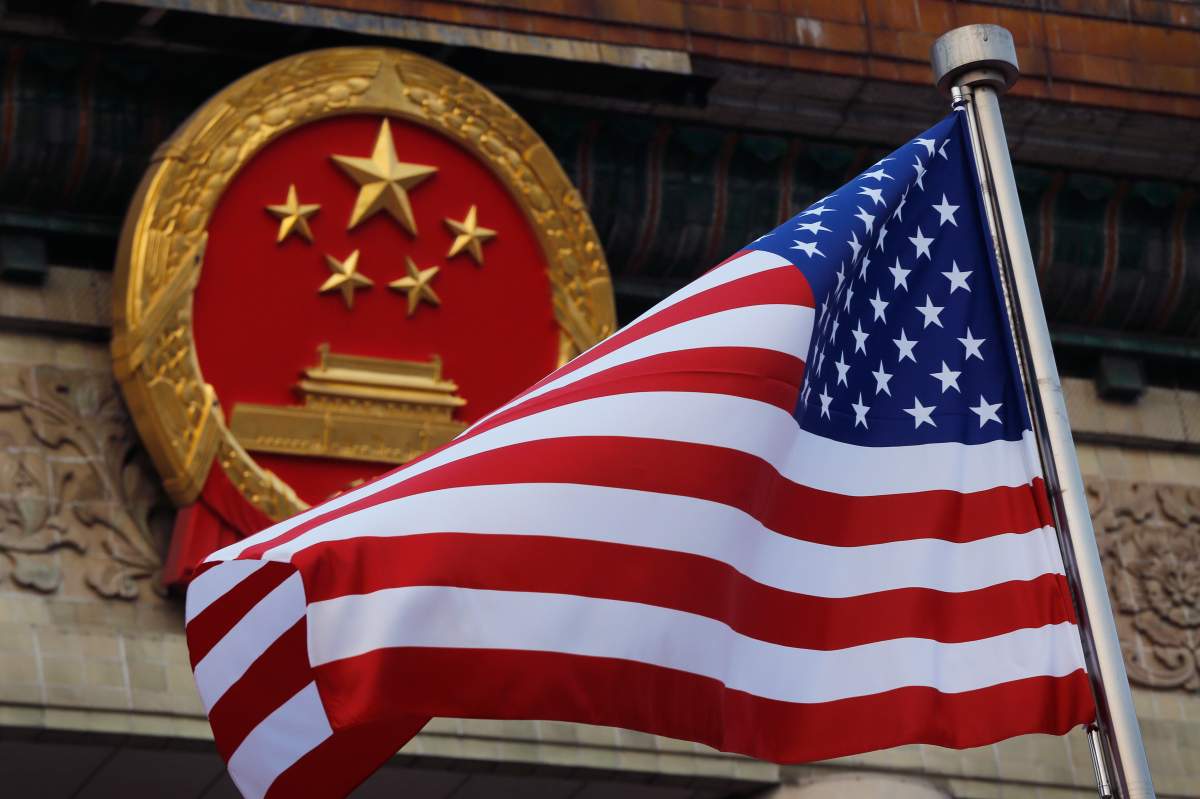Prospects for progress in U.S.-China trade talks dimmed on Monday after Washington blacklisted Chinese companies over Beijing’s treatment of predominantly Muslim ethnic minorities, and U.S. President Donald Trump said a quick trade deal was unlikely.

The move by the U.S. Commerce Department could deepen divisions between Washington and Beijing at a critical juncture in their 15-month trade war that has roiled financial markets and triggered a slowdown in the global economy.
Another flashpoint has been a widening controversy over a tweet from a U.S. National Basketball Association official. His backing of Hong Kong democracy protests was rebuked by the NBA, sparking a backlash.
Trump and his top economic adviser Larry Kudlow spoke in generally upbeat terms about this week’s discussions with China, the first such high-level talks in more than two months, but Trump insisted he would not be satisfied with a partial deal.

“We think there’s a chance we could do something very substantial,” Trump said, referring to minister-level talks scheduled for the end of the week. “I would much prefer a big deal and I think that’s what we’re shooting for.”
Pressed to elaborate on the chances of progress this week, Trump sounded more skeptical. “Can something happen? I guess, maybe. Who knows. But I think it’s probably unlikely,” he said.
He also said he hoped China found a humane and peaceful resolution to the ongoing political protests in Hong Kong, and warned the situation had the potential to hurt trade talks.
“If anything happened bad, I think that would be a very bad thing for the negotiation. I think politically it would be very tough,” he told reporters at the White House.
Police in Hong Kong have used rubber bullets, tear gas and water cannons against pro-democracy demonstrators in the former British colony, which has been plunged into its worst political crisis in decades.

Get daily National news
Beijing views U.S. support for pro-democracy protests in Hong Kong as interfering with its sovereignty.

FIRST HIGH-LEVEL TRADE TALKS IN MONTHS
U.S. and Chinese deputy trade negotiators on Monday launched two days of talks aimed at paving the way later this week for the first minister-level negotiations in months.
The White House officially confirmed that the high-level talks, involving Chinese Vice Premier Liu He, U.S. Trade Representative Robert Lighthizer and Treasury Secretary Steven Mnuchin, would begin on Thursday.
The talks are getting underway about a week before U.S. tariffs on $250 billion worth of Chinese goods are scheduled to rise to 30% from 25%. Trump has said the tariff hike will take effect on Oct. 15 if no progress is made in the negotiations.
The two sides have been at loggerheads over U.S. demands that China improve protections of American intellectual property, end cybertheft and the forced transfer of technology to Chinese firms, curb industrial subsidies and increase U.S. companies’ access to largely closed Chinese markets.
Trump launched a new round of tariffs after the last high-level talks in late July failed to result in agricultural purchases or yield progress on substantive issues. China quickly responded with tariff hikes of its own.
As Monday’s talks got underway, the U.S. Agriculture Department reported more soybean exports to China, the latest in a recent flurry of buying by Beijing. China has booked deals for about 3.5 million tonnes of U.S. soybeans since early September.

Despite his skepticism about a likely agreement in the short term, Trump lauded what he called Beijing’s “very, very strong” purchases of U.S. agricultural products.
Kudlow told reporters the White House had formed a “study group” to examine investment issues, but said the idea of delisting Chinese firms, reported by Reuters and other media outlets last month, was “not on the table.”
TRADE BLACKLIST
Beijing had no immediate response on Monday to the Commerce Department’s addition of 28 Chinese public security bureaus and companies to the so-called “Entity List,” but Chinese officials have railed at previous listings of other Chinese firms such as telecommunications giant Huawei Technologies Co.
The department filing said the “entities have been implicated in human rights violations and abuses in the implementation of China’s campaign of repression, mass arbitrary detention, and high-technology surveillance against Uighurs, Kazakhs, and other members of Muslim minority groups.”
U.S. officials said the announcement was not tied to this week’s resumption of trade talks with China. Those listed are barred from buying parts and components from U.S. companies without U.S. government approval.

Meanwhile, China’s state broadcaster dropped the games of the Houston Rockets, and two Chinese corporate sponsors suspended ties, after the U.S. basketball team’s General Manager Daryl Morey tweeted: “Fight for Freedom, Stand With Hong Kong.”
He swiftly deleted the tweet and apologized to fans in China, where the Rockets have a large following.
U.S. lawmakers expressed anger at the NBA for calling the remarks “inappropriate,” and blasted the league for what they saw as a willingness to allow China to censor free speech for the sake of profit.







Comments
Want to discuss? Please read our Commenting Policy first.